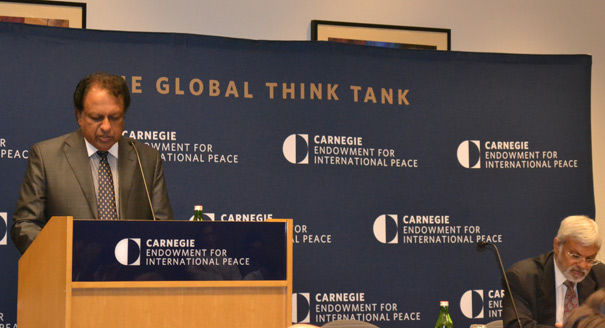Registration
You will receive an email confirming your registration.
The Indian nuclear energy industry is evolving as the country looks for new sustainable ways to power its burgeoning middle class. Thanks to the U.S.-India civil nuclear deal, the Indian and U.S. nuclear industries now enjoy unprecedented opportunities to expand into new markets. But numerous impediments—including public discomfort with nuclear power and the international nuclear industry’s discomfort with India’s nuclear liability legislation—continue to cloud these prospects.
Ambassador T.P. Sreenivasan discussed the key elements for fostering a cooperative and successful civil nuclear energy partnership between India and the United States. Ashley J. Tellis moderated.
T.P. Sreenivasan
Ambassador T.P. Sreenivasan was India’s permanent representative to the United Nations in Vienna and governor for India at the International Atomic Energy Agency. He also served as deputy chief of mission at the Embassy of India, Washington, DC. Currently, he is the executive vice chairman of the Kerala State Higher Education Council with the rank of vice chancellor, director general of the Kerala International Centre, and a member of the National Security Advisory Board.
Ashley J. Tellis
Ashley J. Tellis is a senior associate at the Carnegie Endowment for International Peace specializing in international security, defense, and Asian strategic issues.
